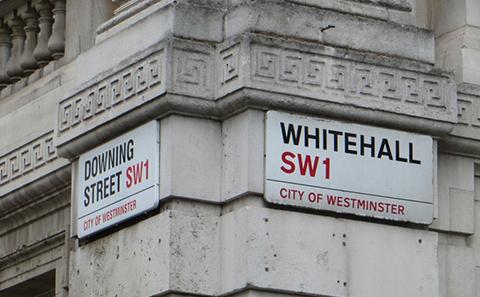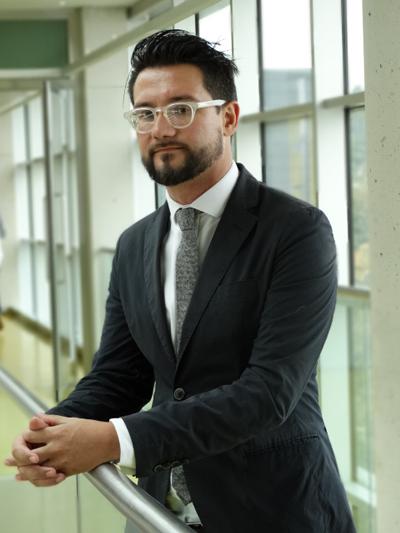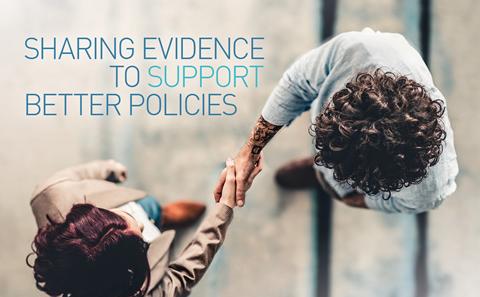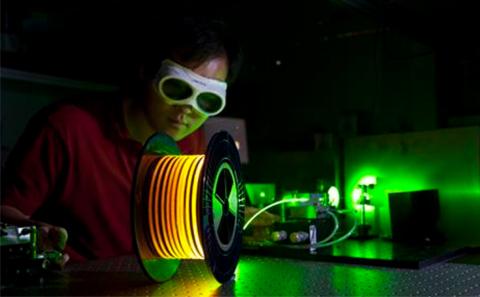
Policy Projects
Learn about PPS led current collaborative projects between the University of Southampton researchers and UK Government and Parliament.

Back in the old world around now, the campus would be popping with the floral endeavours of the Estates team. Academics would be emerging, blinking into the light from behind stacks of marked scripts and tents would be springing up to accommodate the flood of proud family members celebrating the transition from graduand to graduate. These physical prompts would offer an opportunity to pause and reflect on the academic year nearing its zenith.
No such luck this year. Instead, I'm here typing this in my dining room, and you are reading it there in your spare bedroom/kitchen table/kid's bedroom or (if you are living your best life) in your garden office. Campus remains for the majority of us a fond, almost otherworldly, memory. But rather than pause to focus on the missing physical spaces that bind us as a University community, I would like to reflect on what has been achieved in 2020/21 by our researchers, students and external policy partners with the support of Public Policy|Southampton (PPS).
Barely recharged from simulacra of a summer break, autumn was an incredibly busy time for PPS. We on-boarded Chloe Holt (Southampton Business School) and Laura Bea (Graduate and SUSU Sabbatical), two of three brilliant PGT interns who worked with us this year.
Chloe has pushed our social game to a new level launching our LinkedIn offer, identifying academics to platform through our National and International Awareness Days campaigns and correcting our efforts based on monthly campaign evaluations. Atomised as we have been geographical, our social network has bound us together during the last 18 months and have been critical in demonstrating the utility and policy impact of evidence created at the University. Everything you have seen from PPS on Twitter, Facebook and LinkedIn has been designed, implemented, evaluated and adjusted by Chloe.
Laura brought her Sabbatical Officer advocacy zeal to PPS, convincingly arguing for better articulation of our offer to students, driving our Equality, Diversity and Inclusion agenda and delivering our New Things Fund. Both have made themselves critical parts of our endeavour to showcase and engage in the policy debate of our students and academics while working throughout their internships from home.
During this time, Thea Kouraki (PPS Policy Officer and Comms Lead) worked in partnership with Sense about Science to engage colleagues in the School of Education, Electronics and Computer Science and Health Sciences with Parliamentarians as part of digital Evidence Week. This external partnership working was mirrored by exemplary cross professional working with colleagues in CHEP to deliver an all digital Policy|Training programme delivering seven practical policy engagement sessions for researchers and students across the year which have received incredibly positive feedback.
Yaryna Basystyuk (PPS Senior Policy Manager) achieved particularly two big wins during the autumn. Externally, she delivered a series of five ‘Unpacking Migration’ events in partnership with the Parliamentary Office of Science and Technology and the University of Southampton hosted ESRC Centre for Population Change (CPC). Even Yaryna’s tenacity was tested with this Parliamentary event which had been postponed four times by (wait for it): inconclusive Withdrawal Agreement Parliamentary votes, Conservative leadership elections, a general election and the proroguing of Parliament. In no mood for a mere pandemic to derail her event again Yaryna brought together an exceptional digital event that brought speakers from OECD offering timely reflection on the Immigration Act 2020. When not corralling MPs, senior civil servants and globally renowned experts Yaryna also established one of the crowning achievements of 2020/21 – Policy|Associates scheme. In its pilot year this programme has provided 10 PhD students with the paid opportunity to be trained in stakeholder analysis and policy synthesis working under direction of a PPS colleague and in concert with a principle investigator. To date 10 projects have benefited from working with Associates to create 8 grey literature reviews, unearthing government, practitioners and third sector stakeholders to contribute to shaping research direction ensuring policy relevant outputs. This programme had boosted capacity within PPS and research project teams and opening up career options in policy engagement for PhD students leading to, in at least one example, a new prestigious policy engagement role at Kings College London, which commenced days after her successful viva.
After two years of development with the leadership of Southampton Marine and Maritime Institute (SMMI), PPS and SMMI had the pleasure of appointing Dr Wassim Dbouk recent doctoral student from the Institute of Maritime Law, as a Maritime and Marine Policy Research Fellow. Wassim rapidly built partnerships with the Maritime and Coastguard Agency (MCA) headquartered in Southampton to identify and supply four PhD Placements to address knowledge gaps around the safe use of batteries on ships and develop comprehensive databases of academic and non-academic literature around emission reduction technologies as applied to the industry. The placements provided valuable experience working within a government agency which has led to paid employment within MCA for at least one student. This rapid trust-building has since led to the scoping and delivery of three consultancy opportunities for senior researchers who responded to evidence needs around the abovementioned topics.
Operating at full tilt as we went into December, I rather inconveniently contracted COVID, reducing the pairs of hands available to meet our commitments as a team. On my return in the new year, it was incredibly gratifying to see evidence of how the team had lent into this challenge, working together to continue to meet the team’s collective commitments. I am particularly grateful to Yaryna for stepping into providing guidance and leadership to the team in my absence, as I know other team members are too.
During those particularly dark months of January and February, we planted some seeds in advance of the spring that we knew would inevitably arrive, but that seemed impossibly far away. In recognition of the importance of our Comms offer and the scale of the workload that is required, we onboarded our third PGT intern of the year Adrianna Jezierska (Southampton Business School), four months early. Adrianna brought into the team a much welcome dose of enthusiasm, new ideas and energy. Rapidly coming to speed with Sitepublisher she implemented our ‘for students’ tab actualising Laura's goal of bringing together our student offer, bringing opportunities and examples of the university's students brilliant contribution to the policy landscape. Like the rest of the world, I became a podcaster in the first quarter of 2021 with significant encouragement, research and creativity from Thea, Chloe and Adrianna to record the first eight episodes of Policy|Pod. Against a backdrop of seemingly continuous horrendous public health news I took great comfort from the regular planning and consultation meetings led by Laura to shape up our EDI Action Plan. The act of building something meaningful and achievable when so much felt uncontrollable was personally really quite cathartic. But more than just making another straight white guy feeling better about himself, I am confident that we have done good work here. We have received recognition from colleagues across the sector for our measurable and realisable plan of action based on the needs of our membership and utilising best practices that will deliver real change over the next two years and beyond. Around this time, Wassim made his application to the Association of Commonwealth Universities and the British Council’s Commonwealth Futures Climate Research Cohort and Yaryna established herself on the COP26 Universities Group to ensure that Southampton expertise would have a seat at the table when COP came to town. For seeds to grow, they need a substrate, a structure to anchor their roots. For PPS, that structure has been provided by Helen Ballem. Initially, an honorary member of PPS, Helen has made herself integral to the team, ensuring that diaries are juggled, that bills are paid and that projects are on track. How she does this in the equivalent of a day a week, I do not know. I know even less what we would do without her.
As Easter came and went, schools reopened (and stayed open), and vaccination numbers soared; something like hope became palpable.
During my absence in December Laura and Yaryna built the New Things Fund (NTF) based on some scant notes, I had drafted a few open conversations about the problem I wanted to address. NTF was designed in recognition that effective co-production requires work before the formal research bid can be written, that ECR's are less likely to ''short money'' to hand fund that works. That the first step on a journey can be the hardest, and NTF was envisaged to give the impetus to start scoping work, leading to policy impact further down the road. Laura and Yaryna built a £60k seed funding project in mere weeks in December, which targeted Early Career Researchers (ECR) utilising part of the University's allocation of Research England's Strategic Priorities Fund (Quality Research). Where UKRI's Impact Acceleration Accounts provide resources to do that ''last push'' to deliver impact from researcher's evidence, NTF was designed to ''get things going''. Through closely monitored small awards of <£10k and provision of expert engagement with the PPS team, ECRs were encouraged to build policy networks, hire a short term research assistant to gather data for a policy output and speak to policymakers about their evidence needs. After Easter, the successful NTF applicants reported their achievements ranging from Parliamentary Inquiry submissions, focus-grouped language to use when engaging with policymakers, accessible videos and policy briefs. Perhaps more significant than the outputs produce was the effect on the researchers themselves. On average, they recorded a 70% increase in their confidence when engaging with the policy environment and a much greater awareness of the support available from PPS. It felt like the first green shoots were emerging.
In early May we also saw the first round of Policy|Associates projects come to a close with principle investigators equipped with broad and deep policy synthesis complemented by rich stakeholder lists ready for the next step in their engagement strategy - policy workshops. Yaryna delivered a significant number of opportunities for researchers to engage internationally during ClimateExp0, fruits of her patient nurturing of the COP26 Universities Network. Wassim successfully applied to Commonwealth Future Climate Research Group, offering more scope to work with colleagues from across the Commonwealth. He has also breathed life into the PPS relationship with the ongoing British Virgin Islands government facilitating a joint Ministerial briefing with colleagues from across the faculties. Led by Thea, Chloe and Adrianna have tirelessly captured and amplified out into the world and reflected back to our university community the endeavours of the exceptional students and researchers whose knowledge and expertise have helped guide local and national policymakers to serve their communities. And throughout it, all Helen has kept the wheels on.
As I look out of the dining room window, I am certain that there are things that I have missed, but the above gives a flavour of the range of activities achieved while we have been atomised. I cannot wait to see what we will accomplish when we come back together again.
Giles, Head of Public Policy|Southampton, University of Southampton

Learn about PPS led current collaborative projects between the University of Southampton researchers and UK Government and Parliament.

Click here to listen to our Policy Podcast series. In each episode we speak to UoS researchers and experts, about their experiences confronting critical issues in the domestic and foreign policies.

Guidance on the many channels available to researchers to engage with policymakers.

Guidance on things to consider in the science to policy process and useful tips in planning and costing your impact activities.